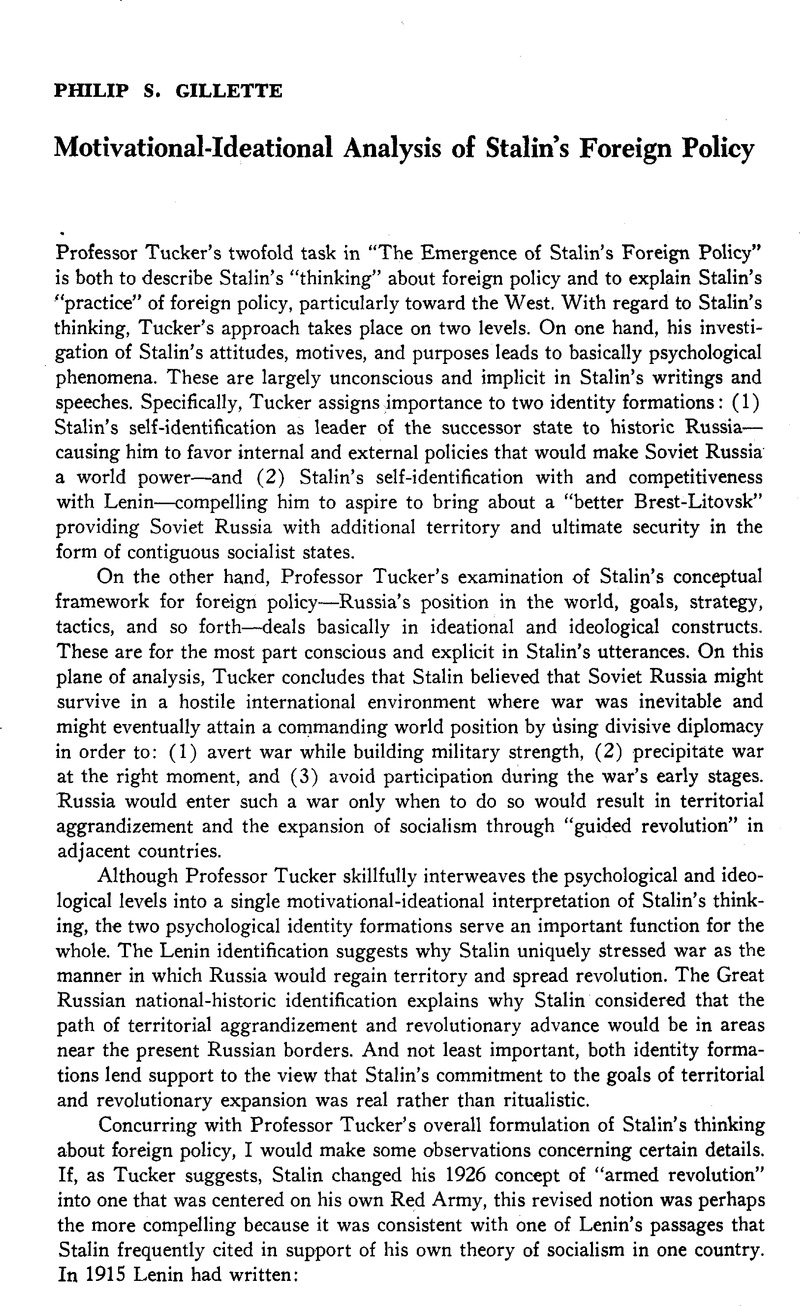No CrossRef data available.
Published online by Cambridge University Press: 27 January 2017

1. Stalin, Joseph V., Problems of Leninism (New York, 1934), p. 69.Google Scholar
2. See Djilas, Milovan, Conversations with Stalin (New York, 1962), p. 73.Google Scholar
3. See Stalin's memorandum to Zinoviev and Bukharin, August 1923, in Trotsky, Leon, Stalin: An Appraisal of the Man and His Influence (New York, 1941), pp. 368–69 Google Scholar.
4. Ibid.; and Gruber, Helmut, International Communism in the Era of Lenin: A Documentary History (Ithaca, N.Y., 1967), pp. 438–41.Google Scholar
5. North, Robert C., Moscow and Chinese Communists, 2nd ed. (Stanford, Calif., 1963).Google Scholar
6. Concerning the Comintern's “New Course,” Helmut Gruber asserts: “More than any previous policy of the Comintern it was the outgrowth of the continuing power struggle among Russian leaders and factions, whose final outcome established the hegemony of Stalin in Russia and in the communist movement” ( Gruber, Helmut, Soviet Russia Masters the Comintern: International Communism in the Era of Stalin's Ascendancy [Garden City, N.Y., 1974], p. 176 Google Scholar).
7. Trotsky, Stalin, p. 328.
8. See below.
9. “Decisions of a Special Commission of the Soviet Politburo on Far Eastern Policy “ (March 25, 1926), in Gruber, International Communism in the Era of Lenin, pp. 463-67.
10. Presumably, Stalin thought primarily in terms of bases and privileges in relation to the Far East.